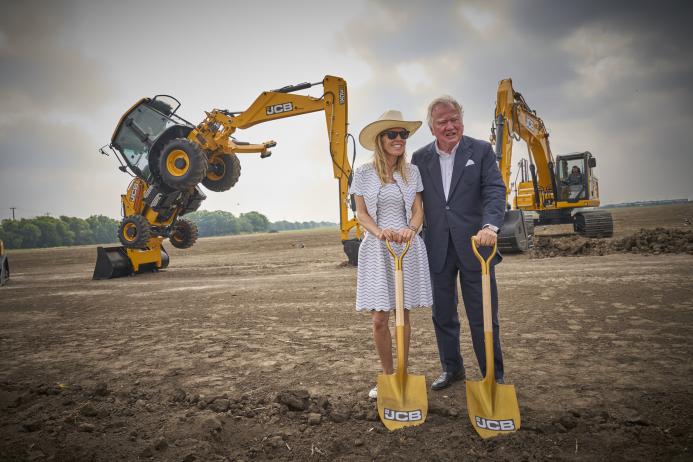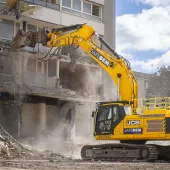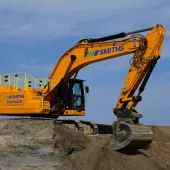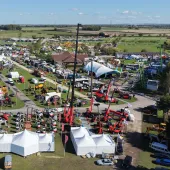JCB’s new US plant to double in size
Company announces plans to double size of Texas facility in wake of Trump’s tariffs
JCB are set to double the size of a new factory currently under construction in Texas as the company confirmed today that newly announced US tariffs will impact its business in the short term.
JCB have been manufacturing in the US for 50 years, and last year bought 400 acres of land in San Antonio after recognizing the need to produce even more machines in North America, where the company’s existing manufacturing plant in Savannah, Georgia, has operated for 25 years and employs around 1,000 people.
The original plan for a 500,000ft2 factory in San Antonio has now been revised and JCB are forging ahead with plans to double its size to one million square feet. The new US$500 million plant is due to start production next year, employing up to 1,500 people and building on JCB’s growth in North America.
Today, JCB chairman Anthony Bamford said: ‘JCB have been in business for 80 years this year and we are well accustomed to change. The US is the largest market for construction equipment in the world and President Trump has galvanized us into evaluating how we can make even more products in the US, which has been an important market for JCB since we sold our first machine there in 1964.’
JCB chief executive officer Graeme Macdonald said: ‘In the short term, the imposition of tariffs will have a significant impact on our business. However, in the medium term, our planned factory in San Antonio will help to mitigate the impact. We are thankful that the tariff is only 10% and we can only hope that the UK Government will conclude negotiations on a trade deal in the coming days and weeks.’
Meanwhile, in a separate statement issued today [3 April], Viki Bell, chief executive officer of the Construction Equipment Association (CEA), said: ‘The introduction of a 10% tariff on UK goods, with higher levels on automotive, steel, and other metals exported to the US, is deeply concerning, particularly given the existing pressures manufacturers face. With surging operational costs, high energy prices, and ongoing skills shortages already squeezing businesses, these tariffs risk exacerbating an already challenging situation.’
She added that the situation for CEA members in Northern Ireland is more complicated, and said it will take time to understand the complexities of that area.
‘Historically, UK-US trade relations have supported growth, jobs, and innovation across both our economies,’ she continued. ‘Our government has been keen to stress this morning that they are ‘engaging with the Trump administration to press the case for alleviation and are well advanced’. Now is certainly not the time for measures that undermine this long-standing, mutually beneficial partnership and disrupt crucial supply chains that span multiple markets. We support the sentiment that this is not the time for a trade war.‘It could undoubtedly have been worse – but, as always, the devil is in the detail. In the coming days, we’ll closely examine precisely how these tariffs will impact construction equipment manufacturers and their integrated supply chains.‘We urge the Government to act swiftly, provide clarity for businesses, and establish a dedicated Tariffs Taskforce, similar to those successfully implemented during the Brexit process. This would help our industry navigate these tariffs practically and swiftly, minimizing disruption at a crucial time.’










